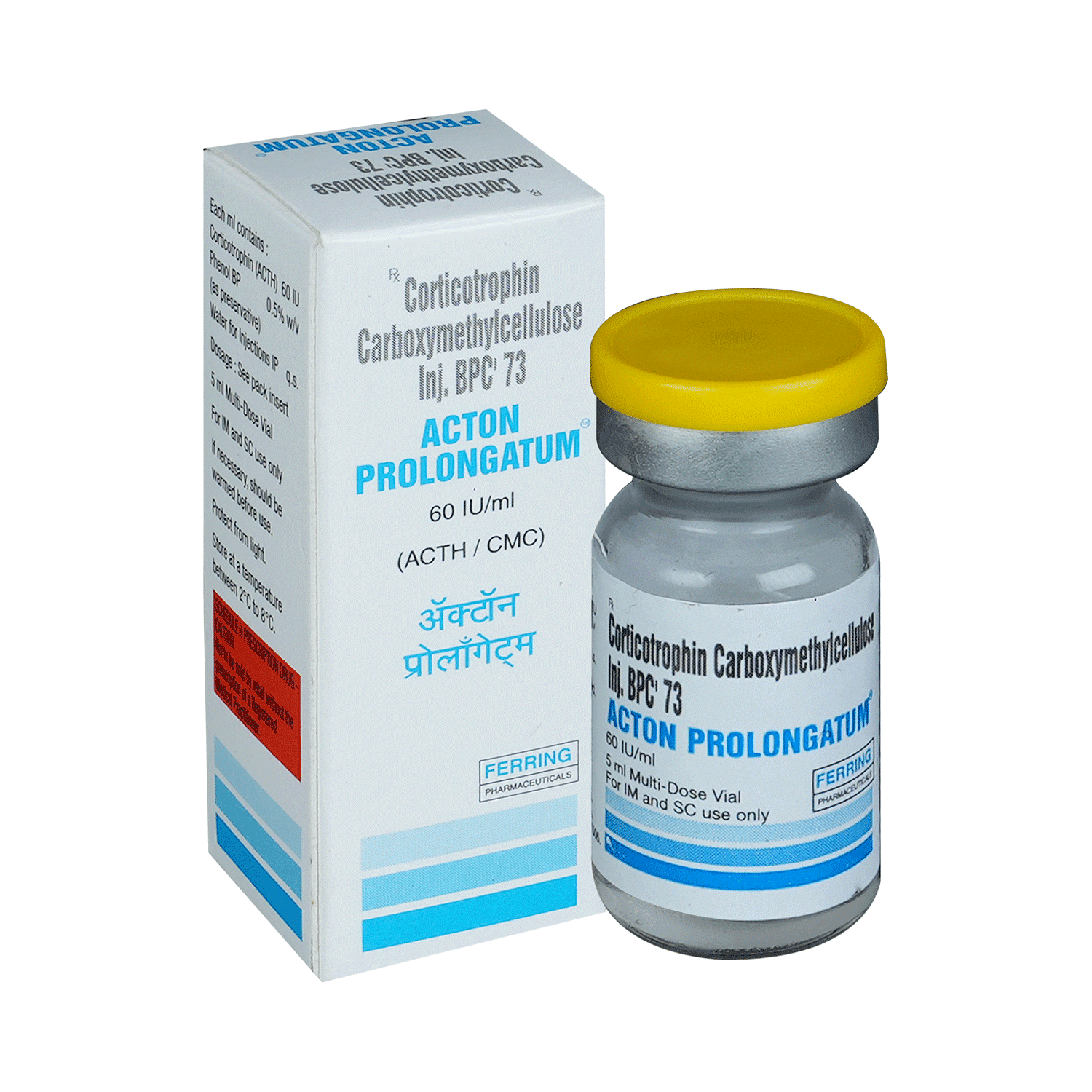
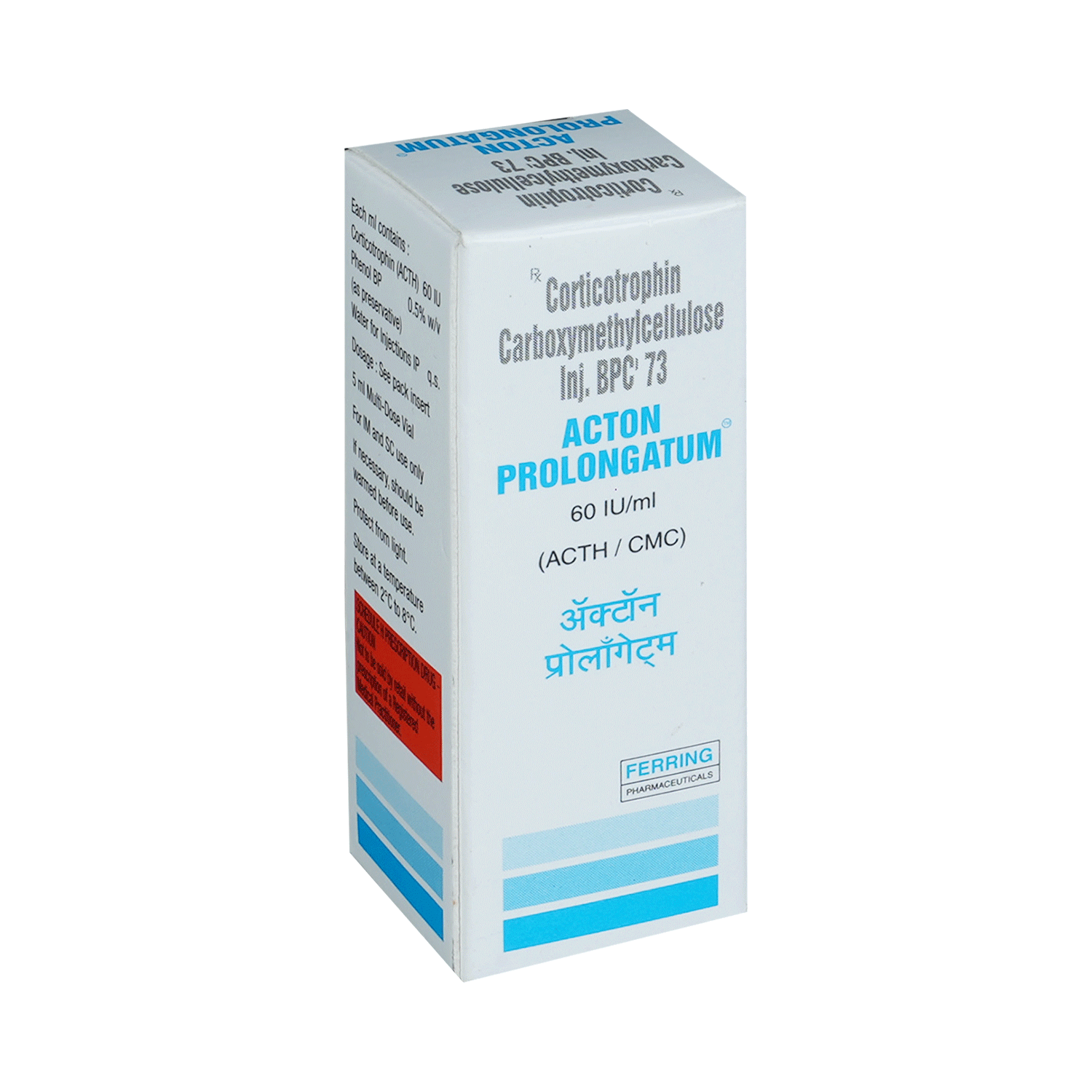
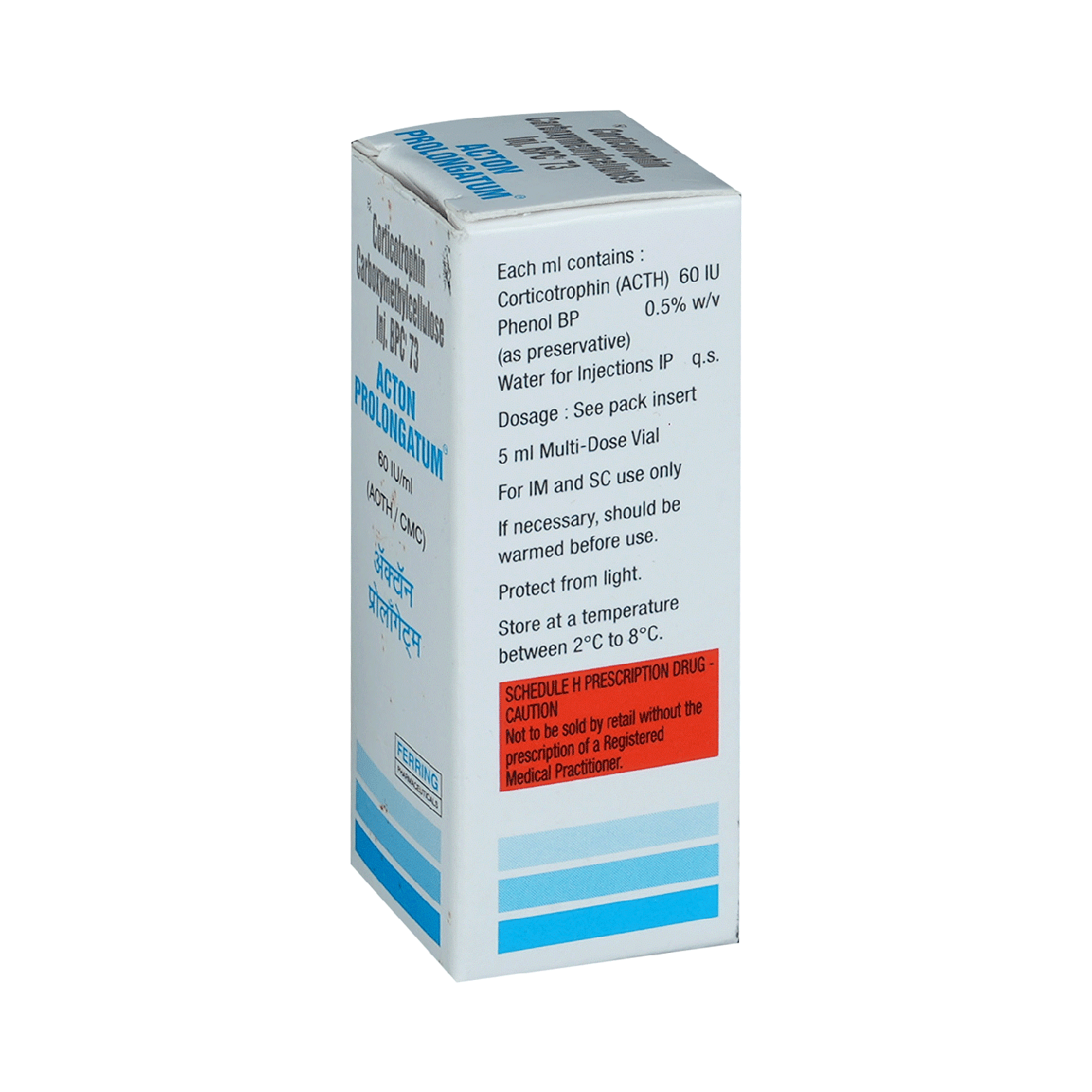
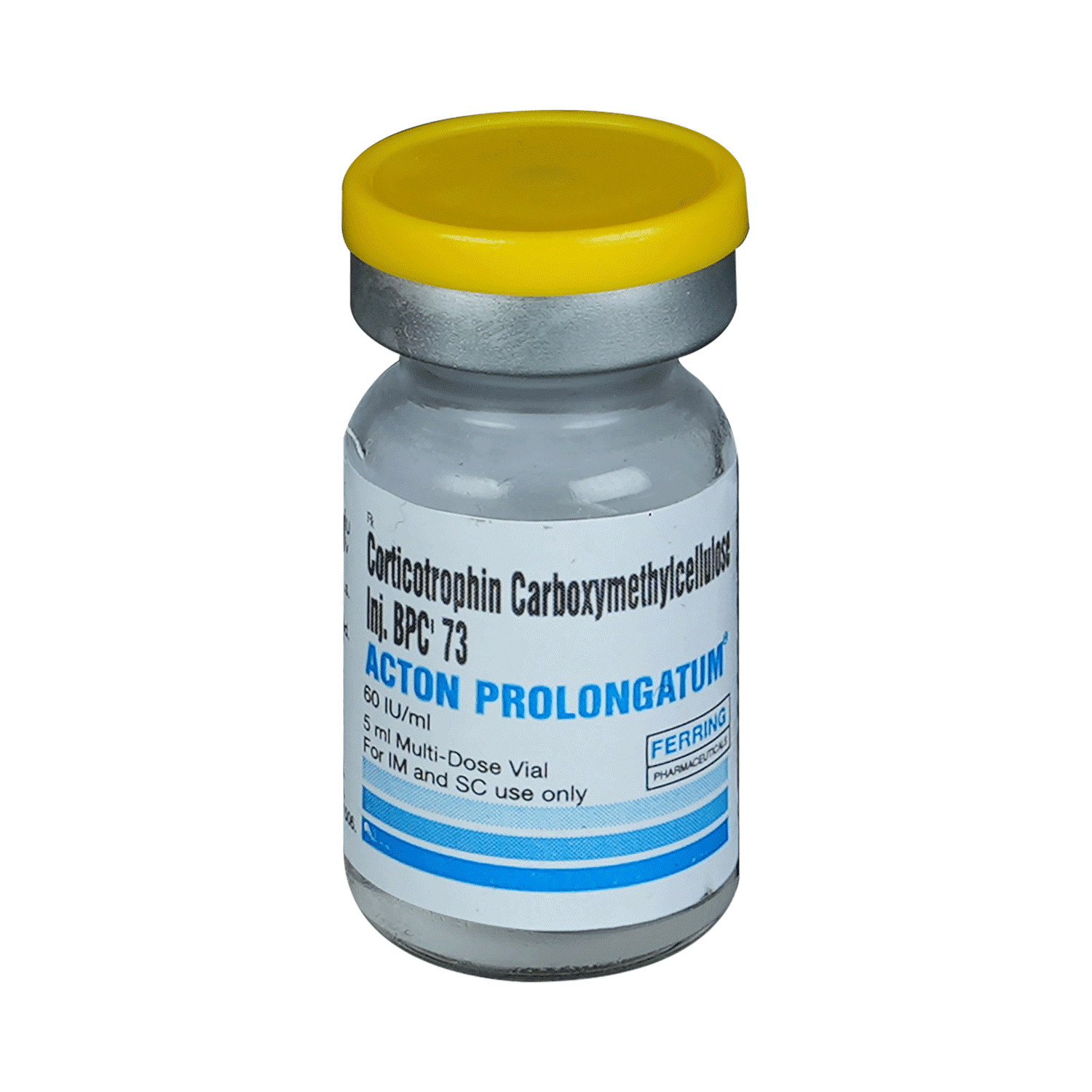
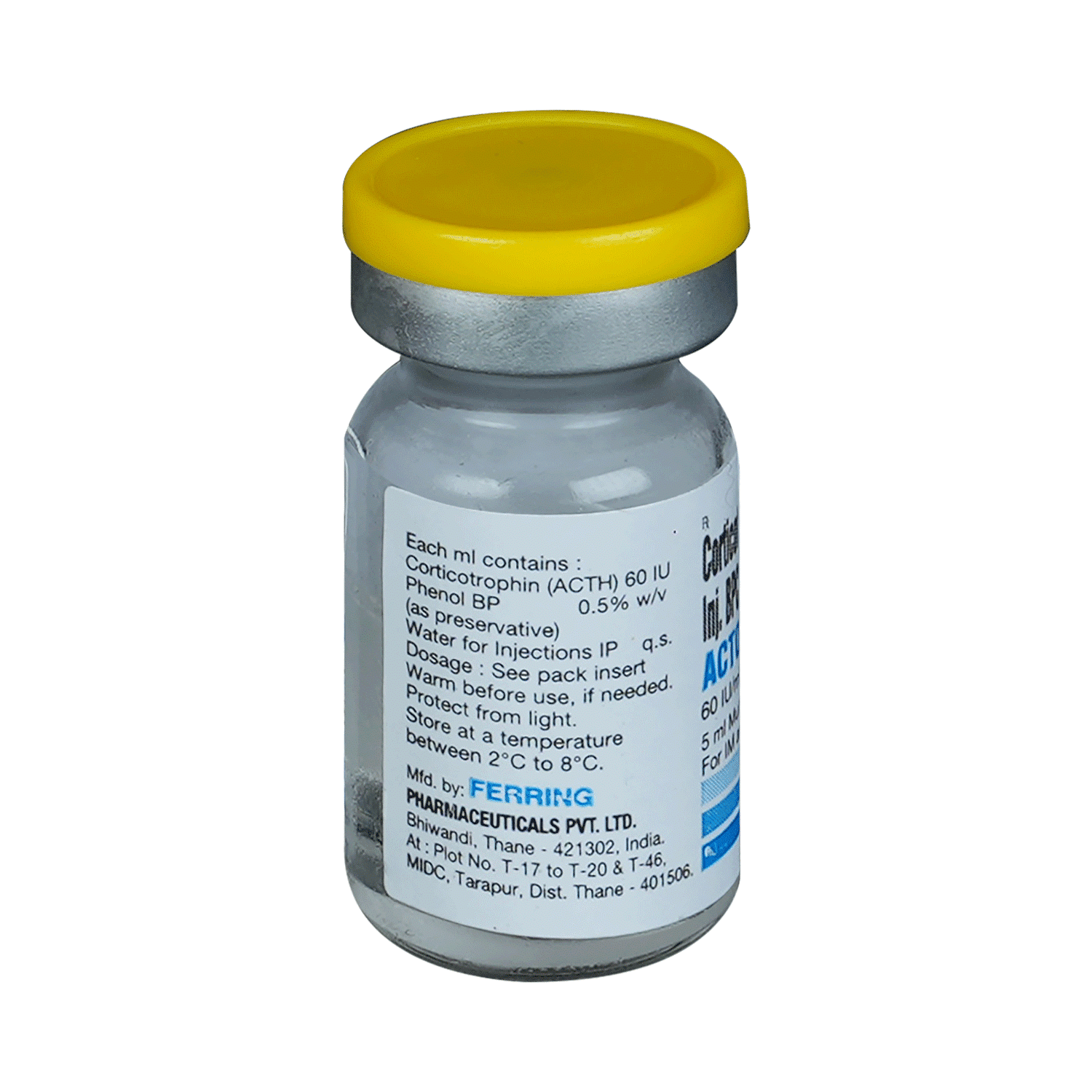
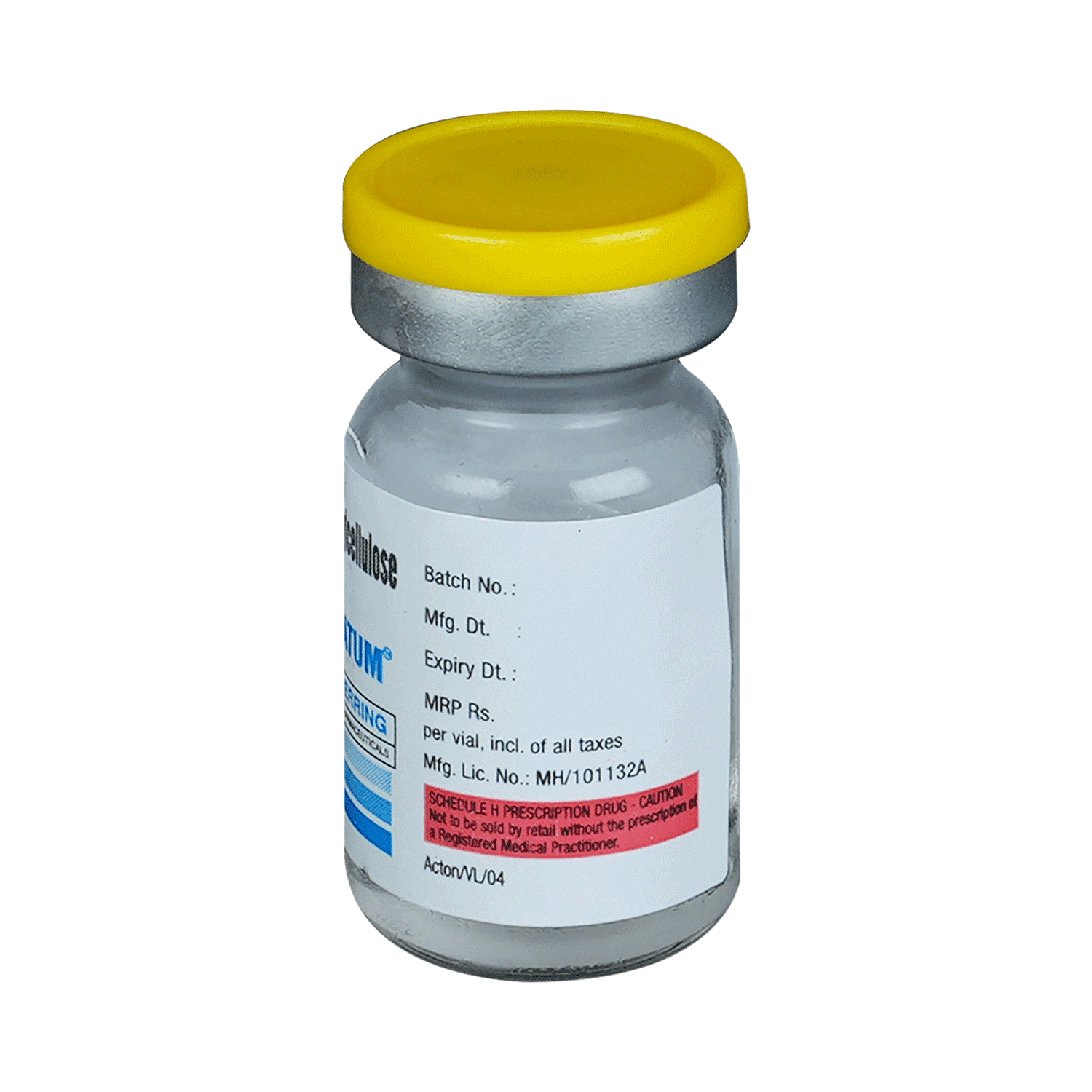
Acton Prolongatum 60IU Injection
Salt Composition
Corticotropin (60IU)
Key Information
Short Description
Acton Prolongatum 60IU Injection is an adrenocorticotropic hormone analogue used in the treatment of infantile spasms.
Dosage Form
Injection
Introduction
Acton Prolongatum 60IU Injection is given as an injection into the skin or muscles under the supervision of a doctor. It should be taken as your doctor's advice. The dose and how often you take it depends on what you are taking it for. Your doctor will decide how much you need to improve your symptoms. You should take this medicine for as long as it is prescribed for you. The most common side effects of this medicine include fluid retention, increased appetite, glucose intolerance, and high blood pressure. If these bother you or appear serious, let your doctor know. There may be ways of reducing or preventing them. Before taking this medicine, tell your doctor if you have ever had high blood pressure or heart problems or had liver or kidney disease. Your doctor should also know about all other medicines you are taking as many of these may make this medicine less effective or change the way it works. Tell your doctor if you are pregnant, planning pregnancy or breastfeeding.
Directions for Use
Your doctor or nurse will give you this medicine. Kindly do not self-administer.
Safety Information
Side Effects
Fluid retention Increased appetite Glucose intolerance High blood pressure
Breastfeeding Warning
Tell your doctor if you are breastfeeding.
Pregnancy Warning
Tell your doctor if you are pregnant, planning pregnancy or breastfeeding.
Quick Tips
Inform your doctor if your child is allergic to any kind of food, dyes, preservatives, etc. If your child is taking any other medicines, give complete details to the doctor. Inform your child's doctor if he/she has medical problems like congenital (inborn) infections or congestive heart failure. Acton Prolongatum 60IU Injection is given as a shot under the skin or into one of the muscles by a healthcare professional. It is very important that your doctor check your child's progress at regular visits to make sure that this medicine is working properly. This medicine may increase the risk of developing infections. Check with your child's doctor immediately if you think he/she gets a fever or chills, cough or hoarseness, or painful or difficult urination. This medicine may cause changes in mood and behavior. Check with your doctor if your child has trouble sleeping, feeling depressed or irritable, mood swings, or other changes in behavior.


